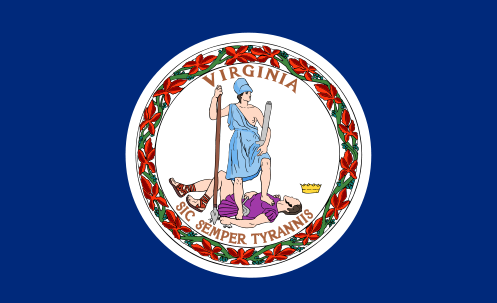Hello, readers! Just a short update this week as we wait for the Supreme Court to hear more cases. First, in case you missed the breaking news, U.S. District Judge Arenda Wright Allen “ruled Thursday [February 13] that Virginia’s ban on same-sex marriage is unconstitutional” (from Virginia Lawyers Weekly). Judge Allen wrote, “Our courts have never tolerated the perpetuation of laws rooted in unlawful prejudice. One of the judiciary’s noblest endeavors is to scrutinize laws that emerge from such roots” (from SCOTUSblog). She declared the ban unconstitutional under the 14th Amendment’s Due Process Clause.
Virginia’s same-sex marriage ban came in the form of “a constitutional amendment adopted by Virginia voters in 2006” (from the New York Times), and, while Judge Allen did strike the restrictive amendment down, she stayed the execution of her ruling until after the case is ruled upon by the United States Court of Appeals for the Fourth Circuit. If the Fourth Circuit strikes down Virginia’s ban, it will also affect North Carolina, South Carolina and West Virginia. These other states are part of the Fourth Circuit and also have restrictive same-sex marriage bans (Maryland is the fifth state whose appeals are heard by the Fourth Circuit, but it recognized same-sex marriages as valid in 2012), so if the Fourth Circuit agrees with Judge Allen and rules Virginia’s ban unconstitutional, at least three other Southern states will have to change their marriage laws (from the New York Times).
Judge Allen’s ruling is the latest in a series of state-level court decisions on same-sex marriage; after the Supreme Court overturned the federal Defense of Marriage Act in United States v. Windsor and refused to rule on California’s Proposition 8 in Hollingsworth v. Perry, judges in several states have ruled same-sex marriage constitutional. I wrote in January about federal judges ruling on same-sex marriage in Utah and Oklahoma, and in late 2013 state Supreme Courts declared same-sex marriage legal in New Mexico and New Jersey. With such a slew of legal challenges to same-sex marriage bans in a variety of states, there’s a strong possibility that the question of state constitutional amendments barring same-sex marriage — such as those seen in Virginia or California — will return to the Supreme Court in its 2014-2015 term. Given that the Supreme Court already tried to dodge the issue of state-level same-sex marriage bans with its decision in Hollingsworth v. Perry, it will be interesting to see whether they address the constitutionality of state-level bans or continue to leave the matter of same-sex marriage up to each state.
Second, I want to direct everyone’s attention to SCOTUSblog’s “Contraceptive Mandate Cases Symposium,” a series of articles on the upcoming cases Sebelius v. Hobby Lobby Stores, Inc. and Conestoga Wood Specialties Corp. v. Sebelius. The first of these articles can be found here, and the master post for the symposium can be found here or here. I previewed the cases in two different columns (found here and here), and I’m looking forward to the oral arguments on March 25. In the meantime, the New York Times previews part of the Justice Department’s argument here, discussing why the Justice Department should be paying more attention to the Establishment Clause and the Religious Freedom Restoration Act of 1993 in order to form a stronger argument in support of the contraceptive mandate. Both SCOTUSblog’s symposium and the New York Times article provide valuable insight into these two hot-button cases, and I highly recommend reading them to get a better sense of what’s at stake when the Supreme Court hears Conestoga and Hobby Lobby in March. Until then, we’ve got oral arguments for the greenhouse gas cases coming up next week, and I’ll be right here to explain them to you. Happy Wednesday!
